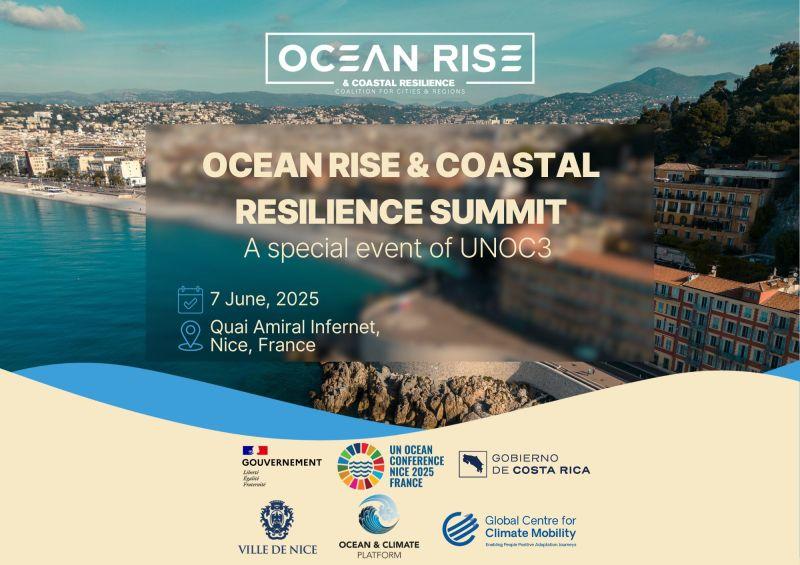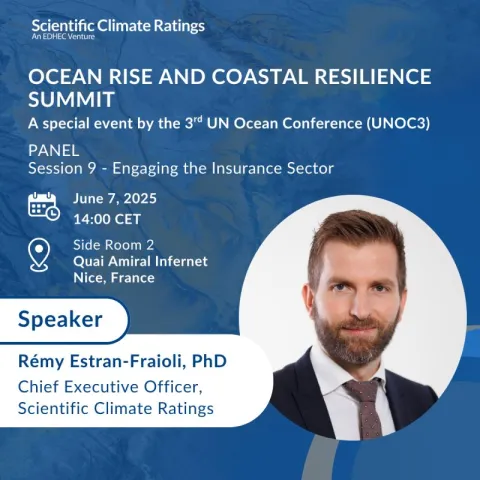Ocean Rise & Coastal Resilience Summit

Coastal regions around the world are on the front line of climate change, facing accelerating sea-level rise, intensifying storms, and growing socio-economic vulnerabilities. Taking place on June 7, the Ocean Rise & Coastal Resilience Summit (ORCR Summit) brings together high-level representatives from coastal cities and regions, scientific institutions, international organisations, and the private sector to address these urgent challenges.
Held in Nice as a special event of the third United Nations Ocean Conference (UNOC3), the Summit aims to foster international cooperation, highlight innovative adaptation strategies, and promote resilient, inclusive development for coastal communities.
The day-long programme features:
-
An opening ceremony and the launch of the Ocean Rise & Coastal Resilience Coalition, including the official signing of its charter by the Coalition’s Vice-Presidents.
-
Nine thematic sessions tackling key topics such as:
– Science-based coastal adaptation
– Risk assessment and data strategies
– Governance and finance mechanisms
– Engineering and nature-based solutions
– Social justice in the face of climate-driven displacement -
A roundtable with Small Island Developing States, emphasising the need for international solidarity.
-
A closing ceremony celebrating new partnerships and outlining next steps for global coastal resilience efforts.
AT 2:00pm CET, as part of the programme, Rémy Estran-Fraioli, PhD, CEO of Scientific Climate Ratings, will speak during Session 9: Engaging the Insurance Sector, moderated by Benjamin Ehl (Axa Group). The session will explore how science-based climate risk ratings can help mobilise the insurance industry in support of long-term resilience strategies.

Rémy Estran-Fraioli will address key issues including:
-
Complementing rather than duplicating existing insurance modelling, by providing forward-looking, decision-relevant insights for investors, public authorities, and infrastructure managers.
-
Creating a common language around climate risk through science-based ratings, already covering over 6,000 infrastructures in 25 countries — fostering alignment between infrastructure operators, investors, and insurers.
-
Highlighting and promoting resilient infrastructure via tailored recommendations for rating improvement, potentially informing differentiated and incentivising underwriting policies.
This intervention contributes to a broader dialogue on bridging science and finance to build coastal resilience in the face of accelerating climate challenges.
Explore more events
See more
See more
